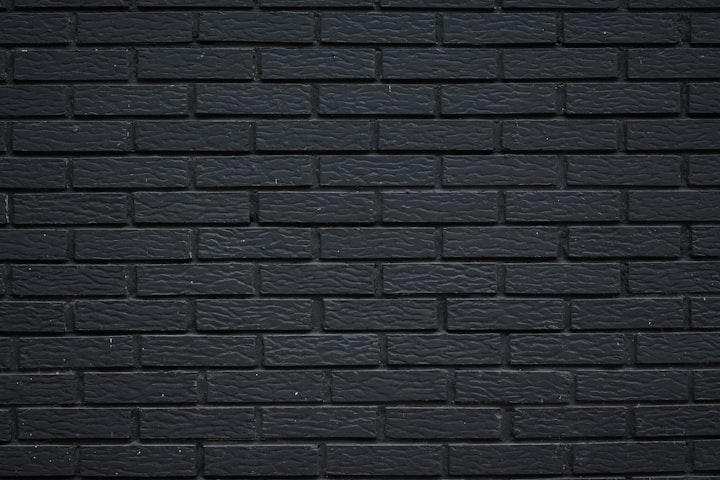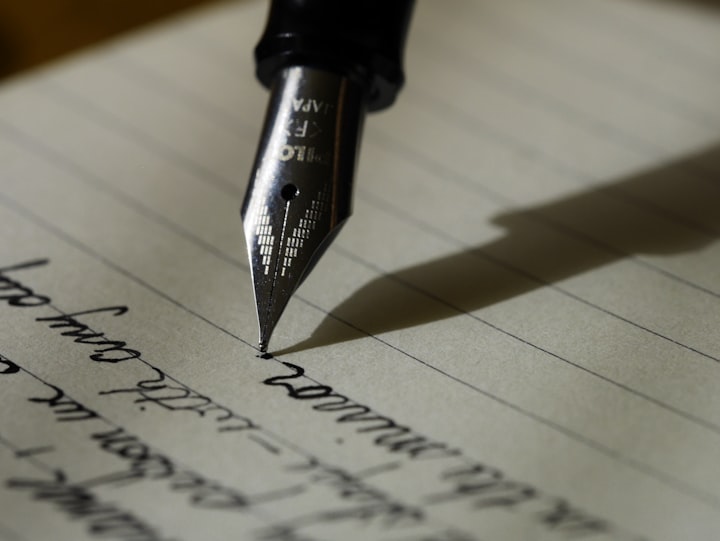
I’ve come to understand writer’s block as a spectrum of experience. I haven’t done much research on the matter unless you count gathering anecdotal evidence of what people experience when they experience “writer’s block” as sufficient research. Despite knowing plenty of literature on the subject exists, I’ve come to this conclusion of an existing spectrum through conversation. My previously developed thought seems reinforced by the fact that several writers on this platform have articulated their unique take on it for the #200 challenge; no two definitions I’ve seen are the same.
Once I identified constant literary “constipation” and never having felt the weight of unpurged thoughts as the expressed poles of this spectrum, it was a simple task of reading more to find other descriptions, whether the writers identified their blocks as such.
The more I read, the clearer it became that each block is as singular as the writer experiencing it, not only in manifestation between people but from occurrence to occurrence. No two blocks are the same. Some people described trying but being unable to write for days, weeks, months on end. A few named imposter syndrome as the culprit of their blocks. Some simply felt they wrote fluff and junk for extended periods with cycles or bouts of inspiration in between. Others expressed a complete absence of these creatively arid times and any self-doubt or insecurities.
Of course, this posed the age-old epistemological question of reality, perception, and the relationship between the two. How do we know what is writer’s block? Are we all experiencing the same writer’s block but in different bodies with different experiential knowledge and understandings, making it appear distinctive? Does writer’s block express itself differently based on environmental factors, leading to a broad range of testimony on the subject? Or, more likely, is it a third, mysterious choice? One that merges theories and allows for a plural view of Self and reality. Perhaps obviously, I choose pluralism, the co-existence of multiple realities and identities in a single person, even if I can’t wrap my head entirely around it.
I’ve been thinking about the ol’ beetle-in-a-box quite a bit lately. This meditation on writer’s block fits in nicely with that thought experiment. Essentially, Wittgenstein poses that everyone has something they know as a “beetle” in a box that only they can look into or open. Now, there may not be an actual beetle in that box. It could be anything at all. Or nothing. A pencil, a cup of coffee, or empty. It could be a beetle or a Beatle. The point is, no one knows but you. If you were to ask people to describe what’s in their box so that others might know what it looked like, their descriptions would vary wildly for this single thing they understand as “beetle.” Ludwig had a lot of points about this. There are too many to articulate here, and they’re not the point of this essay anyway. But he did propose something that is. That somewhere along the line from mental state to articulated thought, things become skewed.
Language fails us. In the way that parents might. It holds us close and safe from the unknown, the inexplicable, and the unanswerable. At the same time, it truncates our experiences, limits what can be known, and sometimes outright misleads us. Language is flawed. As flawed as the people who participate in it. Combine software bugs with user error, and you have our current world. There is no denying we lead a flawed existence, yet we haven't managed cooperation and effective problem-solving for all the shared “public language,” as Wittgenstein called it.
What does this have to do with writer’s block? Well, we, the writers, are the language masters, the envisioners, and the world-builders. We create something from nothing and transform what’s already there, including language. How we see and reconcile with one of our potentially greatest foes matters greatly. We wrestle with Wittgenstein’s “private language,” the ineffable inner world. Of course, many of us deal with uncertainty. It makes sense, given the nature of language and the opinions in our culture about expressing vulnerability and art more generally. But our work is essential. More than anything, our work matters. Writer’s block may be part of the process, but it feels like death when it happens. Sometimes, it can entirely consume us. The depression that can grow from the pressure of unexpressed thoughts, unprocessed experiences, and unmet potential is as real and as painful as any clinically diagnosed one. It debilitates in the same way.
Preventative care is as vital for our physical and mental health as it is for the health of our craft. All creative expression, after all, is intrinsically linked to the health of our overall being. What happens if a person cannot care for their overall well-being on a daily, preventative basis? They go into survival mode. What is challenging to do in survival mode? Create. People end up being unable to care for themselves for all sorts of reasons, including but not limited to lack of motivation, systemic shortcomings, and structural mechanisms designed to keep people unhealthy. That’s not conspiratorial, either. Read Pathologies of Power: Health, Human Rights, and the New War on the Poor by Paul Farmer. It lays out the intended effects of extractive politics, limiting access to healthcare, and the pseudosciences that have justified keeping the bulk members of marginalized groups poor and oppressed. If you don’t know about those things or the harmful impact of cortisol-inducing stress on our bodies, read this book. It’ll change your worldview. Don’t believe him or want to listen to a white medical anthropologist for the myriad reasons you wouldn’t want to listen to any anthropologist? Check out some of the many references in the forty-five-page bibliography.
Listen, I only write all this to say that any experience with or without writer’s block is valid. People experiencing a great deal of it may also be experiencing a great deal of duress. Those who don’t struggle with expressive droughts may not struggle with the same stressors as those who dry up occasionally. So, don’t listen to people who try to tell you your craft is less than or your writing ability is limited because you experience intermittent or extended lulls. Nobody is a has-been or a would-be writer. Nobody is an imposter. We all deserve to express ourselves and be heard as much as the next person. Grammar and punctuation don’t make writing. Consistent practice and perfection don’t make writers. It is, and we are, in part, those things, but what matters most is the story we’ve got to tell.
About the Creator
kp
I am a non-binary, trans-masc writer. I work to dismantle internalized structures of oppression, such as the gender binary, class, and race. My writing is personal but anecdotally points to a larger political picture of systemic injustice.
Reader insights
Outstanding
Excellent work. Looking forward to reading more!
Top insight
Easy to read and follow
Well-structured & engaging content






Comments (4)
I so loved this. I am at a loss for words. I enjoy reading your work.
Language cerainly is flawed -I enjoyed reading your thoughts here. I think writing for ourselves when and if we can is the most importantt thing 🤍
To my understanding, people experience writers block when they force themselves to write. It's like forcing ourselves to eat when we are so full. But when we're hungry, it's only natural that we choose to eat. So when inspiration strikes, that's when we should write. Not try to make the inspiration to come. Lol I hope what I said made sense 😅😅
“Language fails us. In the way that parents might. It holds us close and safe from the unknown, the inexplicable, and the unanswerable. At the same time, it truncates our experiences, limits what can be known, and sometimes outright misleads us.” You explained this so poetically. Great writing kp.